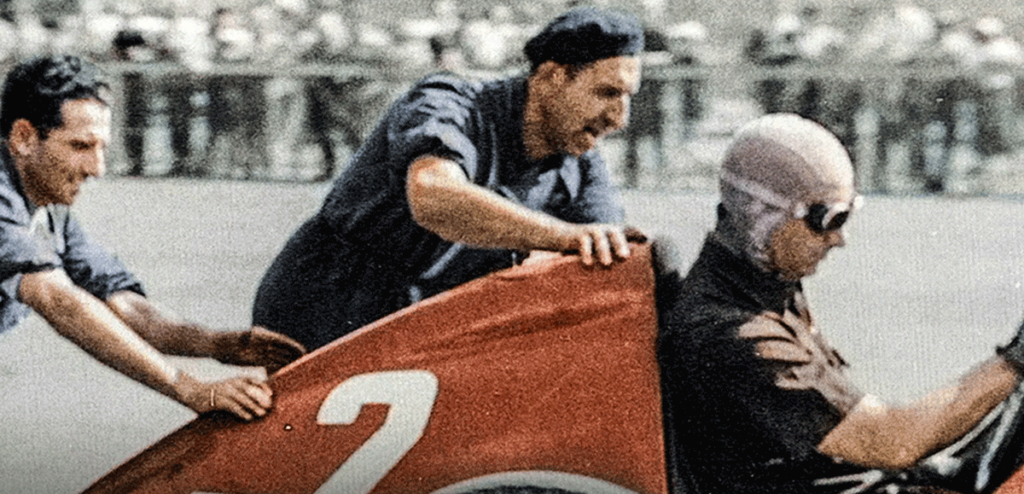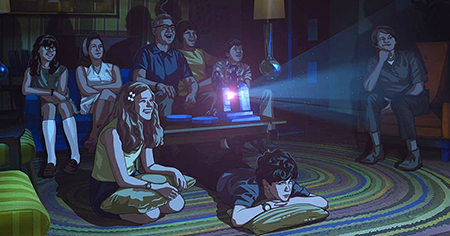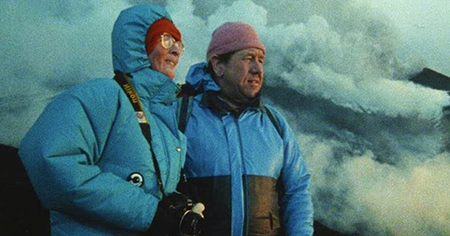
review | A Life of Speed: The Juan Manuel Fangio Story
This Netflix documentary about the Formula One legend makes for compelling viewing, even if you’ve never heard his name
by Dennis Burger
March 30, 2020
Could Superman beat the Incredible Hulk? Is Batman a match for Iron-Man? These sorts of questions have filled the dreams of kids and comic-book geeks alike for decades, but they’re rarely seen as any more than conversation starters or flights of fancy. And yet, for some reason, asking who’s the greatest baseball player or quarterback or goalie of all time is viewed as legitimate discourse amongst grown-ass men and scholars alike.
Those of us who follow motorsports (serious ones, at least) know what a ridiculous question this is when applied to our own passion. Auto racing is as much about the team as it is the pilot. It’s as much about the car as the team. It’s as much about the chaos of meteorological conditions as it is the car. And, yes, we all have our favorite drivers (shout-out to Jan Magnussen), but that often has as much to do with personality or manufacturer affiliation as it does talent.
But such subjectivity didn’t satisfy Dr. Andrew Bell of the Sheffield Methods Institute, who set out in 2016 to use quantitative statistical analysis to remove (or at least account for) the differences made by cars, teams, weather, and even year-to-year variance in order to determine who was the best Formula One pilot of all time. I mention this research only because the resulting paper forms the backbone of the new Netflix documentary A Life of Speed: The Juan Manuel Fangio Story. And this fact alone—the use of scientific parsing to answer the question of who could beat whom if they never competed head-to-head—makes for one of the most fascinating sports documentaries I’ve seen in ages—perhaps ever.
As with any documentary focusing on the accomplishments of a single individual, A Life of Speed leans heavily on biography and provides a solid understanding of who Fangio was and what made him tick, even if you’ve never heard his name before. It also provides a pretty satisfying history of Formula One, a sport that emerged just as Fangio was making a name for himself in long-distance dirt-road racing. On top of that, it sprinkles in a bit of the history of automotive engineering.
Truth be told, if the film weren’t so well made, it would probably crumble under its own weight. It attempts to be three or four documentaries at once—which is at least two too many—and if not for the talents of director Francisco Macri and editor Luciano Origlio, it would be a mess. Somehow, though, it isn’t a mess. Quite the opposite—by juggling so many balls so effectively, A Life of Speed manages to be interesting in several ways simultaneously.
Of course, given its historical nature, the bulk of the film is comprised of archival photographs, old film stock, kinescope recordings, and even a few well-played VHS tapes. That doesn’t mean there’s nothing for Netflix’ 4K HDR presentation to latch onto, though. The present-day interviews and newly filmed historical reenactments are beautifully framed, wonderfully composed, and have a distinctive low-contrast look that still makes great use of the enhanced dynamic range and color gamut of modern home video standards.
If there’s one glaring criticism I can level from a creative perspective, it’s that the score is just awful. If you’ve ever used one of those power-nap apps that are all the rage these days, you’ll recognize the New Age-y ambience in a heartbeat.
Also, the film is presented in a 2.39:1 aspect ratio, which wouldn’t be a problem except for the fact that Netflix positions its subtitles halfway into the black bar at the bottom of the screen, with no way of moving them. So if you’re using a constant-height projection setup, you’ll likely miss half the film’s dialogue and narration (unless you speak Spanish, Italian, German, and English).
Don’t let those quibbles turn you off, though. Even if you’re not a fan of Formula One—indeed, even if you’ve never heard the name Fangio—A Life of Speed is one of those rare documentaries whose quality isn’t contingent upon your interest in the subject matter.
Dennis Burger is an avid Star Wars scholar, Tolkien fanatic, and Corvette enthusiast who somehow also manages to find time for technological passions including high-end audio, home automation, and video gaming. He lives in the armpit of Alabama with his wife Bethany and their four-legged child Bruno, a 75-pound American Staffordshire Terrier who thinks he’s a Pomeranian.
PICTURE | Although most of the film is made up of archival material, Netflix’ 4K HDR presentation does a great job with the present-day interviews and newly filmed historical reenactments
© 2025 Cineluxe LLC





